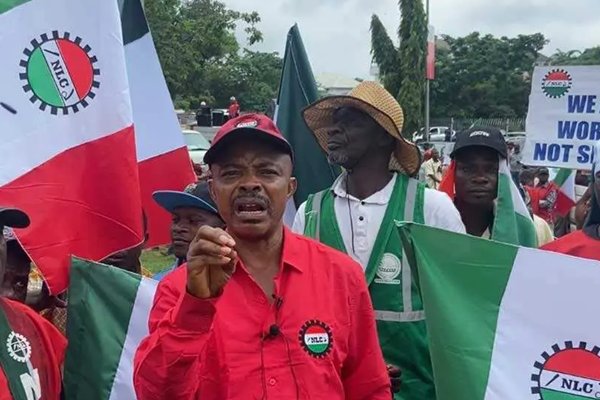The Nigerian Labour Congress (NLC) has issued a scathing indictment of the Minister of Power, Adebayo Adelabu, and the National Electricity Regulatory Commission (NERC), holding them responsible for the precarious state of Nigeria’s power sector. The NLC’s condemnation, voiced through its President, Joe Ajaero, centers on the recurring collapses of the national power grid, characterizing them as symptomatic of deep-seated incompetence and a failure of leadership within the power ministry. Ajaero’s statement points to the unprecedented frequency of these collapses under the current administration, surpassing the combined total of previous administrations, and dismisses the minister’s explanations as “garrulous remarks” that fail to address the gravity of the situation. The NLC’s call for Adelabu’s resignation underscores their belief that his continued leadership represents an insurmountable obstacle to the sector’s recovery.
The NLC’s criticism extends beyond the grid collapses to encompass the proposed 2025 budget allocation of ₦8 billion for “sensitizing” Nigerians about paying electricity bills. Ajaero denounces this allocation as a misplaced priority, a frivolous expenditure in a sector grappling with critical infrastructural deficits. He highlights the stark contrast between this proposed expenditure and the outstanding debt of over ₦200 billion owed to contractors of the Transmission Company of Nigeria (TCN). This juxtaposition, according to the NLC, reveals a skewed sense of priorities where educating consumers about bill payment takes precedence over addressing the financial obligations that underpin the sector’s operational capacity. The union argues that settling the TCN contractors’ debts would be a far more impactful investment, contributing directly to grid stability and improved power supply.
The NLC’s critique also targets the National Electricity Regulatory Commission (NERC), accusing it of regulatory failure and complicity in perpetuating the sector’s woes. Ajaero points to NERC’s alleged inaction in regulating the power sector and its failure to protect consumer interests. He cites a specific instance where NERC allegedly colluded with the board of a distribution company to dismiss its managing director for exposing unethical practices. This incident, according to the NLC, demonstrates NERC’s unwillingness to uphold transparency and accountability within the sector, further eroding public trust. The NLC contends that NERC, instead of fulfilling its mandate of ensuring a fair and efficient electricity market, has become an enabler of mismanagement and corruption.
The confluence of these issues – the persistent grid collapses, the questionable budgetary allocation, and NERC’s alleged regulatory failures – paints a bleak picture of Nigeria’s power sector, one teetering on the brink of total collapse. The NLC argues that these problems are not merely technical glitches but stem from a systemic failure of leadership and governance. They contend that the individuals entrusted with managing the sector have demonstrably failed to fulfill their responsibilities, prioritizing self-serving interests over the needs of the nation. The NLC’s call for accountability and a change in leadership reflects their conviction that a fundamental shift is required to salvage the sector.
The NLC’s strong stance signifies a growing public frustration with the chronic power shortages plaguing Nigeria. The unreliable electricity supply has far-reaching consequences, hindering economic growth, disrupting daily life, and fueling social unrest. The NLC’s intervention, by holding those in power accountable, aims to amplify the public’s voice and demand concrete action to address the crisis. Their call for the minister’s resignation and their criticism of NERC’s conduct represent a decisive step towards demanding greater transparency and accountability within the power sector.
The NLC’s statement concludes with a warning to the government against using the budget process for wasteful expenditures and a call for urgent action to revitalize the power sector. The union emphasizes that its vigilance extends beyond this immediate crisis, committing to ongoing monitoring of the sector’s developments. This commitment reflects their determination to ensure that public funds are utilized responsibly and that the interests of Nigerian citizens are prioritized. The NLC’s message is clear: incompetence will not be tolerated, and those entrusted with public service must be held accountable for their actions. Their unwavering stance serves as a powerful reminder of the importance of citizen engagement in holding power to account and demanding a functioning and equitable power sector that serves the needs of all Nigerians.


